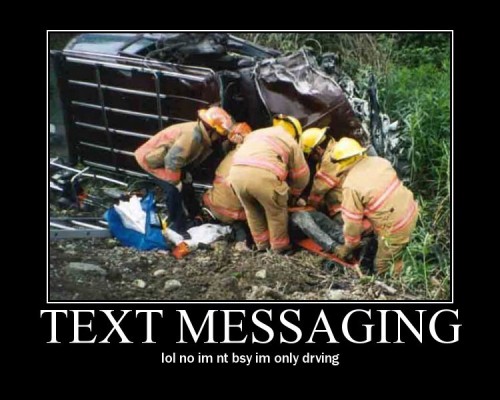Yesterday, Ford became the first automaker to endorse a bill, introduced by Rep. Carolyn McCarthy (D-NY), to ban distracted driving. When a similar bill was introduced in the last session, Ford was the first to endorse it then, too.
McCarthy's bill requires USDOT to set minimum standards for state bans on “the use of hand-held mobile devices on a public road while operating a moving or idling motor vehicle, except in the case of an emergency.” If a state violates USDOT’s minimum standards, that state would lose 25 percent of its federal highway transportation funding. The bill also directs the agency to conduct a study on distracted driving, particularly among young drivers. However, the bill includes a big loophole: It provides an exception for voice-operated, vehicle-integrated devices.
In a press release, Ford Vice President Pete Lawson said, “Ford believes hands-free, voice-activated technology significantly reduces that risk by allowing drivers to keep their hands on the wheel and eyes on the road.”
The USDOT-supported distracted driving prevention group, Focus Driven, says hands-free devices don’t do the trick. “Studies show hands-free devices provide no safety benefit,” they say. “It’s the conversation, not the device, that creates the danger.”
That doesn’t stop automakers from touting their safety records when they introduce hands-free technology. Two years ago, the Alliance of Automobile Manufaturers, which represents 11 major automakers, endorsed a ban on the use of handheld devices while driving – but at the same time, it congratulated Ford for launching “its factory-installed, hands-free device called Ford Sync, allowing drivers to answer their phone without searching for it.”
Verizon came out last week in favor of Rep. McCarthy’s distraction ban too, but its statement is a little fishy. It says the company supports the bill, which “will require the U.S. Department of Transportation to study the impact of in-vehicle wireless use and recommend legislative activity based on the findings of the study.”
McCarthy’s bill does considerably more than study the problem, but Verizon makes no mention of the stronger provisions of the bill that would actually prohibit driving while talking or texting.
At any one time, nine percent of drivers are talking on cell phones, which makes those drivers four times as likely to crash [PDF]. According to the National Highway Traffic Safety Administration, 5,474 people died as a result of driver distraction in 2009, making up about 16 percent of all auto crash fatalities that year. The numbers could be even higher than that: A study released last year by the NHTSA and the Virginia Tech Transportation Institute found that “80 percent of automobile accidents and 65 percent of near-accidents involved at least some form of driver distraction within three seconds of the crash or near-miss.”
Enforcement has been proven to reduce distracted driving. According to Rep. McCarthy, “Immediately after New York banned cell phone use while driving in 2001, cell phone use declined an estimated 47 percent” and has gone down another 24 percent since then.
Yesterday, Transportation Secretary Ray LaHood announced the results of two pilot enforcement and education programs aimed at distracted driving.
“The one-year study showed the rate of electronic device use while driving dropped significantly in both pilot programs,” LaHood wrote in his blog. “Syracuse showed an overall decrease of 32 percent in both handheld phone use and texting. Hartford showed an even more impressive 57 percent drop in handheld phone use and a stunning 72 percent drop in texting behind the wheel.”






